July 6, 2021 (Middletown, Conn.) — While some baseball fans are impressed with New York Mets pitcher Jacob deGrom’s 0.95 ERA (as of July 6), Stephen Krevisky, mathematics professor at Middlesex Community College, says it’s all relative.
“Pitchers don’t throw as many innings as they used to during the dead-ball era,” said Krevisky, referring to the period in baseball from around 1900 to 1920 when pitchers dominated and before the emergence of the power-hitting Babe Ruth.
“Today, they don’t throw complete games,” he added. Through June, deGrom averaged 5 innings per start.
 Krevisky pointed out that 1968 was the year of the pitcher—when Bob Gibson’s ERA was 1.13 and boasted a 22–9 win-loss record for the St. Louis Cardinals.
Krevisky pointed out that 1968 was the year of the pitcher—when Bob Gibson’s ERA was 1.13 and boasted a 22–9 win-loss record for the St. Louis Cardinals.
It’s statistics like this that Krevisky, who began teaching at Middlesex in 1985, uses to make learning about math fun for his students.
A New York native, Krevisky is a lifelong NY Yankees fan. He went to games with his dad and remembers being at ball fields including the Polo Grounds in New York and Ebbets Field in Brooklyn. Over the years, he has accumulated an extensive collection of baseball items and brings them to his classes to engage students as he teaches algebra, calculus and statistics.
Krevisky has authored many articles about math and baseball that make him quite the statistics enthusiast.
As he is immersed in numbers, Krevisky also puts them to use as president of the Connecticut Smoky Joe Wood Chapter of the Society for American Baseball Research (SABR).
He has presented at SABR’s national conventions on topics such as “Should Ernie Banks Have Won the 1958 and 1959 National League MVP Awards?” His demonstration compared MVP voting charts for Banks and two or three other players (such as Hank Aaron, Willie Mays and Eddie Mathews) for both years. Then he compared their statistics (home runs, runs batting in, etc.), combined with other factors that were not even in existence in those days (such as Wins Above Replacement or WAR statistic) to verify that Banks did deserve to be the MVP for both years.
WAR is one of the new statistics which shows how much positive value a star player contributes to his team, above what an average player contributes, which = 0. There are different formulas for this, and Krevisky invites readers to check out the website baseball-reference.com.
Another way Krevisky engages students who study math is to let them compete. Each year, students from Connecticut’s community colleges participate in a contest sponsored by the Mathematical Association of Two-Year Colleges of Connecticut (MATYCONN). Krevisky co-coordinated the 30th annual event this past April, with nearly 40 contenders, including 20 from Middlesex. He gives students in his classes extra credit to participate, plus cash prizes went to the top three scorers.
While most of the questions relate to math, the contest always includes one baseball question. See if you can answer this one:
“In the 2009 World Series between the Yankees and the Phillies, a total of 59 runs were scored over 6 games. In the first game, the Phillies won by 5 runs. In the second game the Yankees won by 2 runs. In the third and fourth games, the Yankees won by 3 runs each time. In the fifth game, the Phillies won by 2 runs. In the sixth game, the Yankees won by 4 runs. How many total runs did the Yankees score over the 6 games?” (Answer at end of story.)
Krevisky points out the relationship between music and math and finds a way to work that into his teaching. He wrote a song called, “The Algebra Blues,” which he performs in class. Here’s one of the verses:
“I got all the baseball stat up there in my head
I know Mickey Mantle’s numbers as I lie wake in bed
I know all about Willie, Hank Aaron and the Duke
But if I get a problem right, it’s really quite the fluke!
I got the statistics blues, yeah, the statistics blues!
Can’t draw that histogram, just don’t know what all to do!”
To take courses at Middlesex, students need to meet requirements in English and math, which can sometimes be a challenge for some.
“I wasn’t originally good at mathematics, certainly not in high school. When I came here, I started at the lowest level in elementary algebra, so in two years I’ve gone from there all the way to differential equations,” said John Guillamon, MxCC class of 2020, during an interview with Middlesex Moments radio show last year. “I really enjoy the logic behind it, and how there are so many approaches to a single problem.”
Krevisky appreciates the enthusiasm that students like Guillamon display during his math classes and in the college’s Math Club that Krevisky co-advises. The club conducts activities recognizing Pi Day every March 14. sponsors field trips and takes part in the annual state-wide math contest. In addition, students who excel in math are inducted into Mu Alpha Theta, a national math honor society, each spring.
“I still have great enthusiasm for recruiting students to the Math Club and the Math Contest,” said Krevisky during the radio show interview. “Math shows up in so many areas—like in my love for baseball statistics.”
Krevisky also tutors students in the library’s Academic Success Center, doing what he can to help emphasize the need to do homework to get students through their classes. For extra credit, Krevisly’s Math for Liberal Arts class did a group project by naming their all-time, 25-person Yankees team— they called them the “Killer Kreviskies!”
“Most people have to work at math. Not too many people are natural at it,” said Krevisky. “I tell my students, ‘consider yourselves researchers, analogous perhaps to looking up something in the baseball encyclopedia.’ That’s the way I like to approach it.”
Answer to baseball question: The Yankees scored 32 runs.
Written by Thea Moritz
Since 1966, Middlesex Community College has provided high-quality, affordable, and accessible education to a diverse population, enhancing the strengths of individuals through degree, certificate, and lifelong learning programs that lead to university transfer, employment, and an enriched awareness of our shared responsibilities as global citizens. A part of the Connecticut State Colleges and Universities system, MxCC offers more than 70 degree or certificate programs at the 35-acre campus in Middletown, MxCC@Platt in Meriden, and online.

